Navigating the AI Transformation Tightrope: Balancing Innovation, Regulation, and Human Capital
The artificial intelligence landscape in late 2025 presents a complex picture of immense opportunity tempered by significant operational challenges....
7 min read
 Peter Vogel
:
Updated on June 30, 2025
Peter Vogel
:
Updated on June 30, 2025
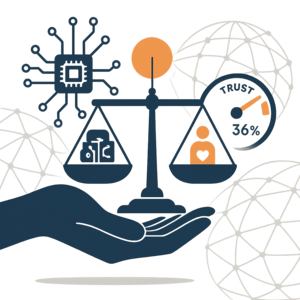
The AI landscape in mid-2025 is a paradox of unprecedented opportunity and escalating complexity. While artificial intelligence promises to revolutionise industries and redefine work itself, organisations face a growing thicket of ethical considerations, workforce transformation challenges, and operational integration hurdles. Emerging patterns highlight the need for responsible AI adoption, proactive workforce development, and strategic implementation focused on measurable business impact. This requires a shift from simply adopting AI to strategically navigating its implications.

AI adoption in marketing is no longer a question of 'if' but 'how'. As organisations increasingly rely on predictive analytics and hyper-personalisation to target consumers, they must navigate a complex landscape of ethical guidelines and regulatory scrutiny. Recent developments highlight the growing importance of responsible AI adoption, especially concerning algorithmic bias. A recent EU audit framework has exposed algorithmic bias in predictive marketing tools. These audits revealed that many tools exhibit biases leading to targeted advertisement campaigns that unfairly discriminate against protected groups. These findings follow the launch of mandatory guidelines from the European Commission (Financial Times, 2025). This requires transparency reports on training data sources and bias testing, with major implications for marketing teams globally.
The practical implications for organisations are clear: companies must proactively identify and mitigate bias in their AI systems to maintain consumer trust and avoid legal repercussions. According to McKinsey, 42% of organisations reported ethical incidents from deployed AI in 2024 (McKinsey, 2025). This is not merely a matter of compliance, but a strategic imperative. Failing to address algorithmic bias can lead to reputational damage, erode customer loyalty, and ultimately undermine the effectiveness of marketing efforts. Integrating ethical considerations into AI systems is not without its challenges. It involves costs, requires ongoing monitoring, and demands a fundamental shift in how marketing teams approach data and algorithms. One challenge is the need to create robust bias detection metrics and establish clear accountability frameworks. Another is the difficulty in establishing transparent data usage policies and maintaining consumer trust amid privacy concerns, particularly as 63% of consumers expect real-time personalised offers (Adobe Consumer Survey, 2025).

AI is not merely automating tasks; it is fundamentally reshaping the workforce, creating new roles and demanding new skillsets. Addressing the AI skills gap is crucial for organisations seeking to harness AI's full potential and maintain a competitive edge. The challenge lies not only in acquiring new talent but also in upskilling the existing workforce to thrive in an AI-driven environment. An IBM report revealed a free reskilling initiative for 500,000 workers to address the severe talent shortage in AI, with a focus on prompt engineering and AI management (BBC, 2025). Meanwhile, an analysis of LinkedIn job postings highlights a 65% preference for ""AI literacy"" over traditional degrees (LinkedIn Workforce Report, 2025), signalling a shift in hiring priorities.
For organisations, the practical implications are significant: companies must invest in upskilling their existing workforce and redefine job roles to leverage AI effectively. This requires a strategic approach to talent development, focusing on skills that complement AI capabilities and enable human-AI collaboration. One challenge is the need to create effective training programmes focused on practical AI skills, such as prompt engineering, data analysis, and AI management. Another is the need to foster a culture of continuous learning to adapt to the rapidly evolving AI landscape, especially as 50% of workers require upskilling by 2027 to remain employable (OECD, 2025). The demand for ""AI translators"" (business-AI liaisons) already exceeds supply by 3:1 (LinkedIn Workforce Report, 2025).
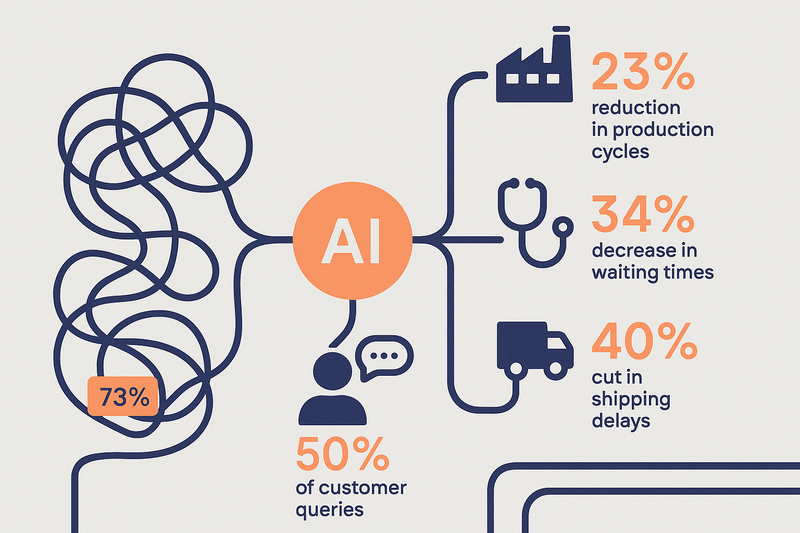
AI-driven operational efficiency is no longer a futuristic concept but a present-day necessity. As organisations face increasing pressure to improve productivity, reduce costs, and optimise resource allocation, AI-powered solutions are emerging as a critical enabler. From streamlining manufacturing processes to optimising data centre energy consumption, AI is transforming operations across industries. A new AI-powered factory optimization suite by Siemens has demonstrated a 23% reduction in production cycles (Manufacturing Weekly, 2025). The NHS is rolling out an AI triage system across 47 hospitals, resulting in a 34% decrease in waiting times (HealthTech Journal, 2025). Maersk is cutting global shipping delays by 40% with an AI platform (Logistics Today, 2025).
The practical implications for organisations are substantial: companies can achieve significant cost savings, productivity boosts, and improved resource allocation by implementing AI-powered optimization tools. AI-augmented teams show 34% higher output in creative sectors (Deloitte, 2025), and AI handles 50% of customer queries without escalation (IBM Customer Experience Index, 2025). However, the path to operational efficiency is not without its challenges. The integration of AI into legacy systems remains the top barrier (cited in 73% of cases), and implementing ethical standards is a complex undertaking. Ensuring seamless integration of AI tools with existing systems and workflows is a complex undertaking, requiring careful planning and execution. Establishing robust data governance frameworks to ensure data quality, security, and compliance is equally critical.

The AI talent war is escalating, with major tech companies vying for the brightest minds in the field. This competition has led to unprecedented acquisition strategies and eye-watering valuations, as companies seek to gain a competitive edge in the AI landscape. Meta, seeing the importance of talent in AI, is trying to buy its way into the future. It was reported that Meta offered a $30 Billion buy out of PerplexityAI, but was turned down. Instead, they onboarded Daniel Gross and Nat Friedman, and have a 49% stake in ScaleAI.
For organisations, the practical implications are significant: companies are having to invest large amounts of capital to acquire talent in the AI space. This highlights the importance of strategic talent management and the need to attract and retain top AI professionals. However, acquiring talent is not without its challenges. Finding the right talent to lead these AI teams, and maintaining that talent, requires a thoughtful and proactive approach. Moreover, maintaining the vision of the company you acquired is critical. The AI sector isn’t governed by gentleman’s agreements; these are billion-dollar plays involving some of the smartest, most strategic actors in tech.

The ethical implications of AI are gaining increasing attention, with calls for responsible development and deployment coming from diverse voices across society. The Vatican is now calling for the ethical treatment of AI across the world. This is in light of new advancements that could impact human dignity. In a statement, the Vatican explained that there should be a firm response to the potential downfalls of AI, and that the church is willing to engage with Silicon Valley to ensure ethical AI deployment. The leader of the Catholic church also stated he would be pushing to secure an international treaty that would ensure the ethical treatment of AI.
For organisations, the practical implications are clear: companies need to be aware of a new moral standard, and they need to make sure they are upholding human dignity in their AI strategies. This requires a commitment to ethical AI development and deployment, with a focus on fairness, transparency, and accountability. Public trust is low, with only 36% of citizens trusting corporate AI use (Edelman Trust Barometer, 2025). However, implementing ethical standards is not without its challenges. Developing standards to ensure ethical development is a complex undertaking, requiring careful consideration of diverse perspectives and values. Working with religious organisations to determine what is and is not ethical presents additional hurdles.
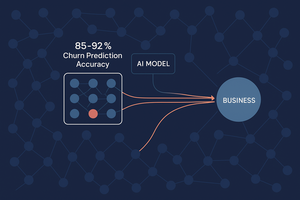
The artificial intelligence landscape in late 2025 presents a complex picture of immense opportunity tempered by significant operational challenges....
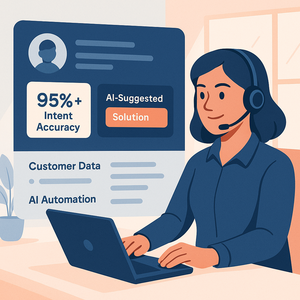
The discourse surrounding artificial intelligence is maturing. Across boardrooms and operational teams, the conversation has decisively shifted from...
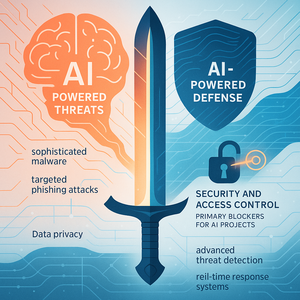
The artificial intelligence landscape is no longer a distant frontier; it's rapidly reshaping the present, demanding a strategic response from...